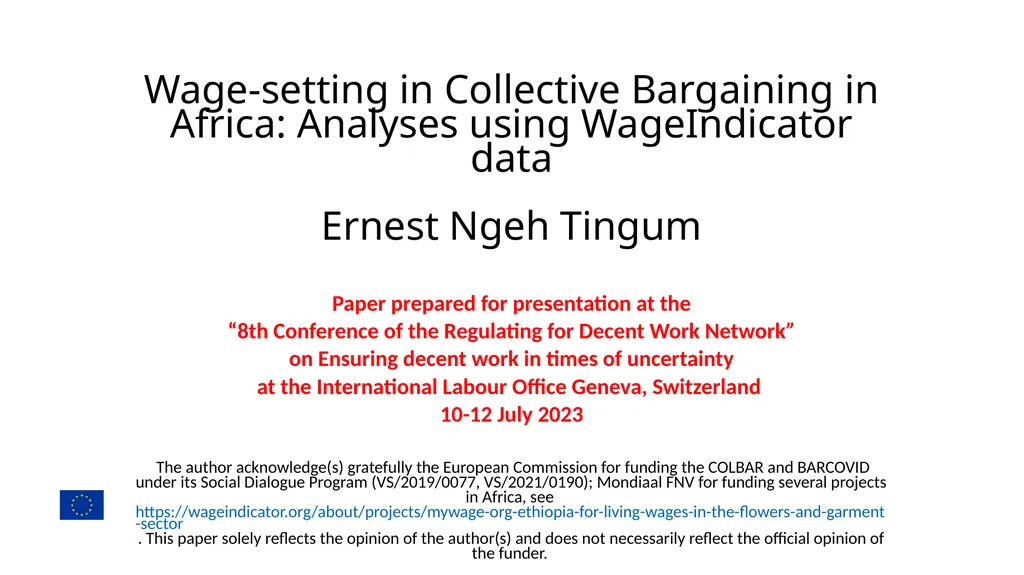
Author : liane-varnes | Published Date : 2025-06-27
Description: Wage-setting in Collective Bargaining in Africa: Analyses using WageIndicator data Ernest Ngeh Tingum Paper prepared for presentation at the 8th Conference of the Regulating for Decent Work Network on Ensuring decent work in times ofDownload Presentation The PPT/PDF document "" is the property of its rightful owner. Permission is granted to download and print the materials on this website for personal, non-commercial use only, and to display it on your personal computer provided you do not modify the materials and that you retain all copyright notices contained in the materials. By downloading content from our website, you accept the terms of this agreement.
Here is the link to download the presentation.
"Wage-setting in Collective Bargaining in Africa:"The content belongs to its owner. You may download and print it for personal use, without modification, and keep all copyright notices. By downloading, you agree to these terms.













